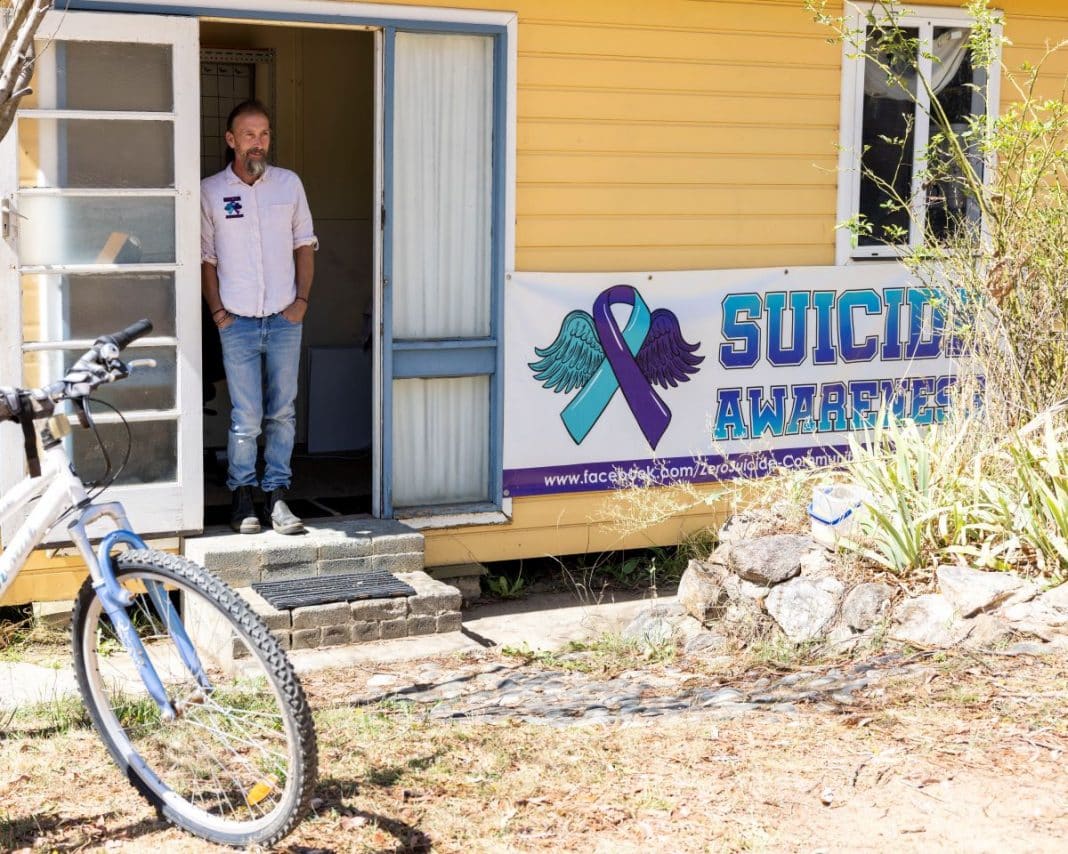On a twelve-month timeline, the Zerosuicide Farm Stay is determined to make a difference in the lives of as many people as they can, offering a safe and welcoming environment for men who are suffering to come and work through their issues.
Located on a property 30km from the edge of Canberra, participants are encouraged to get back to nature, connect with their peers, unpack issues, and begin to build meaningful and sustainable routines. Though the program is focused on rehabilitating men, it hopes the trickle-down effect will help the whole community.
“For 40 years now, men suicides have been 70 per cent of all suicides, and all rises and declines have been based on the men suicide issue. So, by raising the issue of men, in turn, we help our women,” says president of the Zerosuicide Community Awareness Program, Paul Andrew Withall.
Mr Withall says he fell into the role after some friends who were struggling with personal problems set up a Facebook support group, but a serious and recurrent issue soon arose – suicidal ideation. As it wasn’t something he had experienced personally, he decided to do some research.
He quickly found that men experiencing issues like domestic violence and substance abuse didn’t seem to have any services. The group started lobbying for a Men’s Health and Welfare Minister. He says some politicians advised them on how to gain more traction, and suggested doing something to get public attention.
After taking the idea to Facebook, they decided to line up 2,500 empty shoes on the lawns of Parliament House, representing the 2,358 men who took their own lives in Australia in 2021. Through this event, Mr Withall made contact with the Ralph Hurst-Meyers Charity Limited, who owns the property where the farm stay is now situated.
At first, not wanting to abandon his advocacy, Mr Withall was hesitant to accept the offer until Mr Hurst-Meyers said he could continue his program, using the facility as a base.
“It’s $30,000 a month this facility; they’ve given us 12 months to see if we can show that we can make a difference. That’s a donation of $360,000, offsetting electricity – without them, this would never happen,” Mr Withall says.
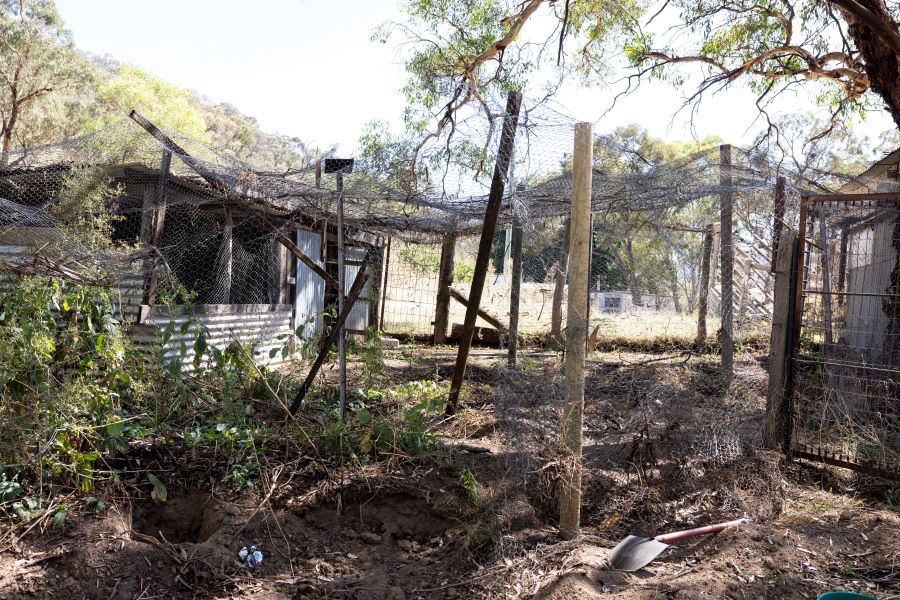

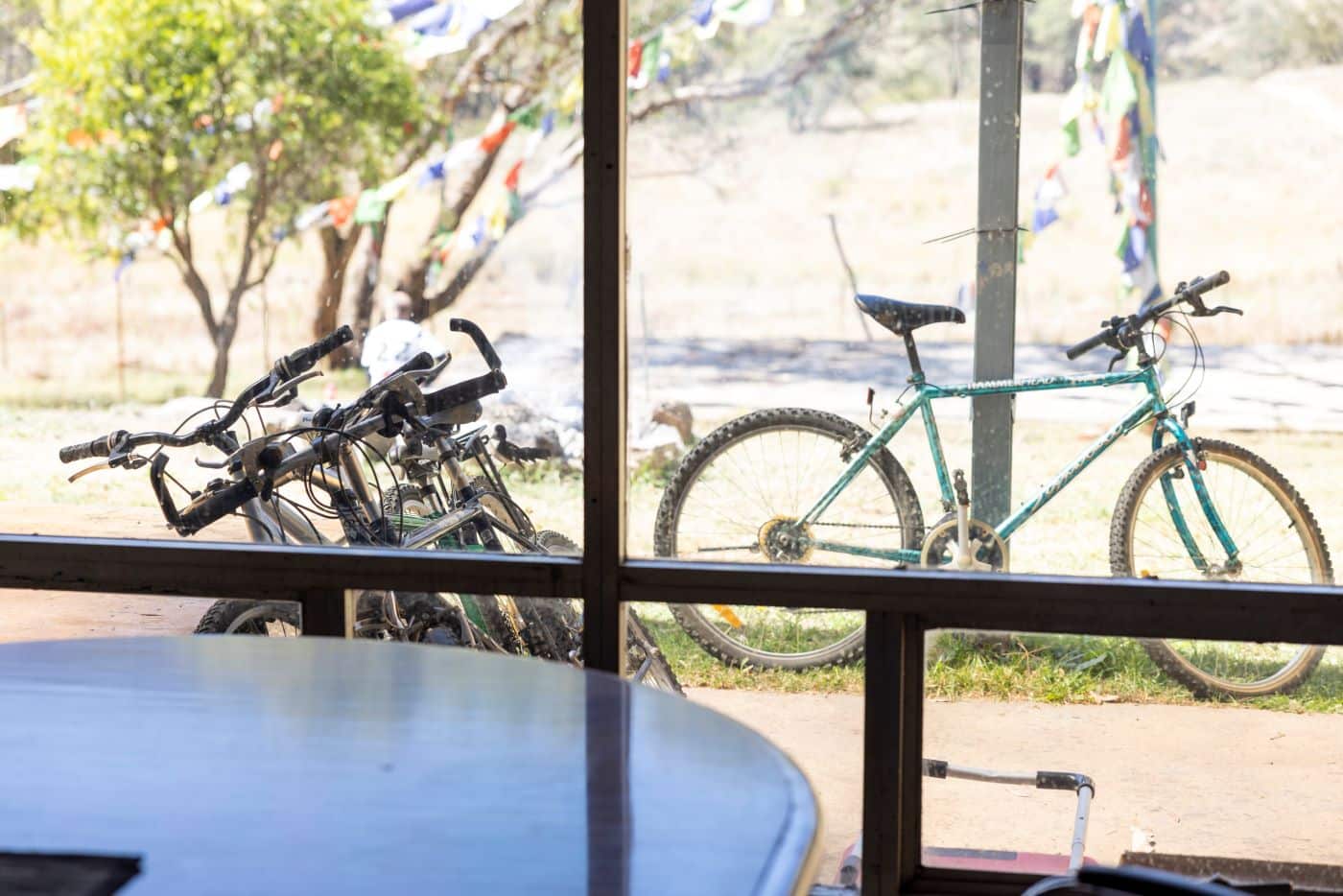
In January, Mr Withall left his successful carnival operator business and moved his caravan to the property. Helping the community has always been at the core of his practices; in his business of rides and games, he offered them to charitable organisations for free and donated 20 per cent of the total earnings.
However, he believes money doesn’t solve all problems. The farm stay has accepted no government grants and doesn’t intend to. Mr Withall says the $450 million that goes towards suicide prevention doesn’t seem to be helping.
“Money is an asset. It doesn’t actually take away people’s pain. It doesn’t stop anything,” he says.
Firstly, he says, Australia needs to start dealing with situational distress, to help make a difference in people’s lives and to take pressure off the health system. Sometimes, a potential label of mental illness may scare people away from talking about their problems.
“The three main reasons that men suicide is family relationship breakdown, loss of access to children, or financial issues. They’re not diagnosable mental health issues,” Mr Withall says.
The group started preparing the property in January; a weekend working bee helping them to identify what needed to be done to get everything in working order. Next, they started planning and assembling the program.
“We spoke to a few drug and alcohol counsellors, knowing that a lot of these situations relate to people self-medicating, so we had to get on top of that,” he says. “We’ve got to make sure they’ve completely detoxed. We fully understand that people can detox in the wrong way, and it can kill you.”
If a program participant is dependent on drugs, they are expected to be open and honest about their history, to have detoxed at home and will be drug screened on arrival. The farm stay operates a drug- and alcohol-free environment at all times.
The community has been forthcoming in offering support. Mr Withall reached out to a supermarket chain for support, which now supplies them with near-expiration goods every weekend. The Green Shed has come on board to supply equipment, such as kayaks, while chain stores like Big W, Bunnings, and Coles have donated a monthly allowance for cleaning supplies and household needs.
Officially launching on 1 February, to resolve any teething problems Mr Withall undertook the two-week intensive farm stay program to experience what the participants will go through. After that, the program expanded to include a weekend stay, and a day program for men from local Salvation Army centres.
“I’ll come and pick you up from here and you can come out and spend a day on the farm and we do something out here, whether it be a fire, or talk to them or talk to each other,” Mr Withall says.
He says the day is mapped out for participants because when depression sets in, it can be near impossible to do anything. Organisers explain to participants that even simple things like making their beds could mean they get a better, more comfortable sleep that night.
“Goals and routine are the two most important things we want to teach our kids, isn’t it? So, it’s the same thing we need to teach these adults. It re-empowers them, makes them feel worthy.”
Wake up is at 8am; participants then practice hygiene, and head to the communal kitchen to make themselves breakfast and clean up. At 9am the program starts, which deals with the emotional side of the process; they talk to each participant and offer advice and tools on how to work through their problems.
During the daily program, each man is required to talk about his situation and troubles, which is where they support one another, including tough conversations like telling them when they were, in fact, the problem. He says accountability is an important step, and they have to own their mistakes.
“So, we’re gonna learn to sit with it … You’ve done the wrong thing – that’s all right, it’s past. Now you’ve got to work on what you’re going to do to better yourself and, through bettering yourself, these other things might start to change,” Mr Withall says.
Each man then makes his own lunch and again cleans up after himself. The afternoon is for fun, such as exploring the property on foot, bike or kayak. Every third day is a reward, when they head into town and find something fun to do, such as going to the movies or the War Memorial. They then head back to pitch in together and cook dinner before relaxing.
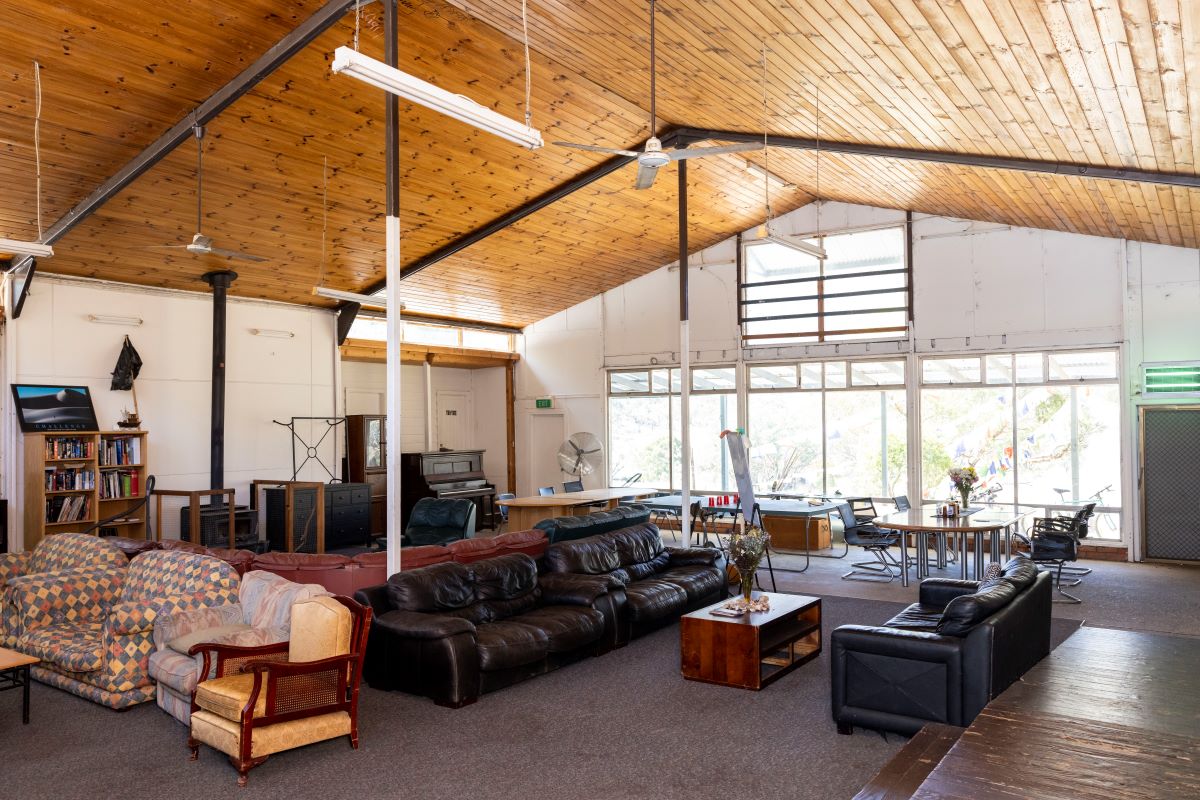
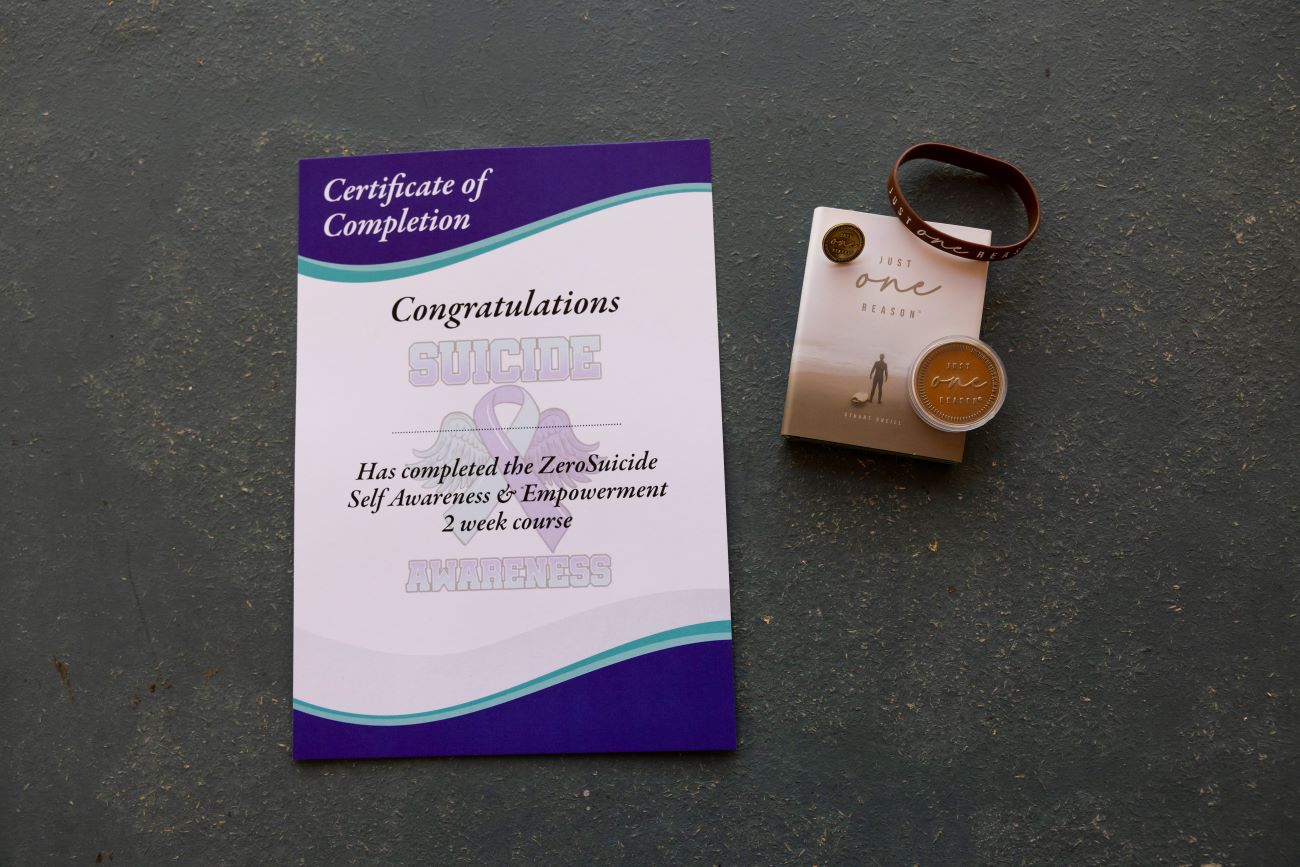
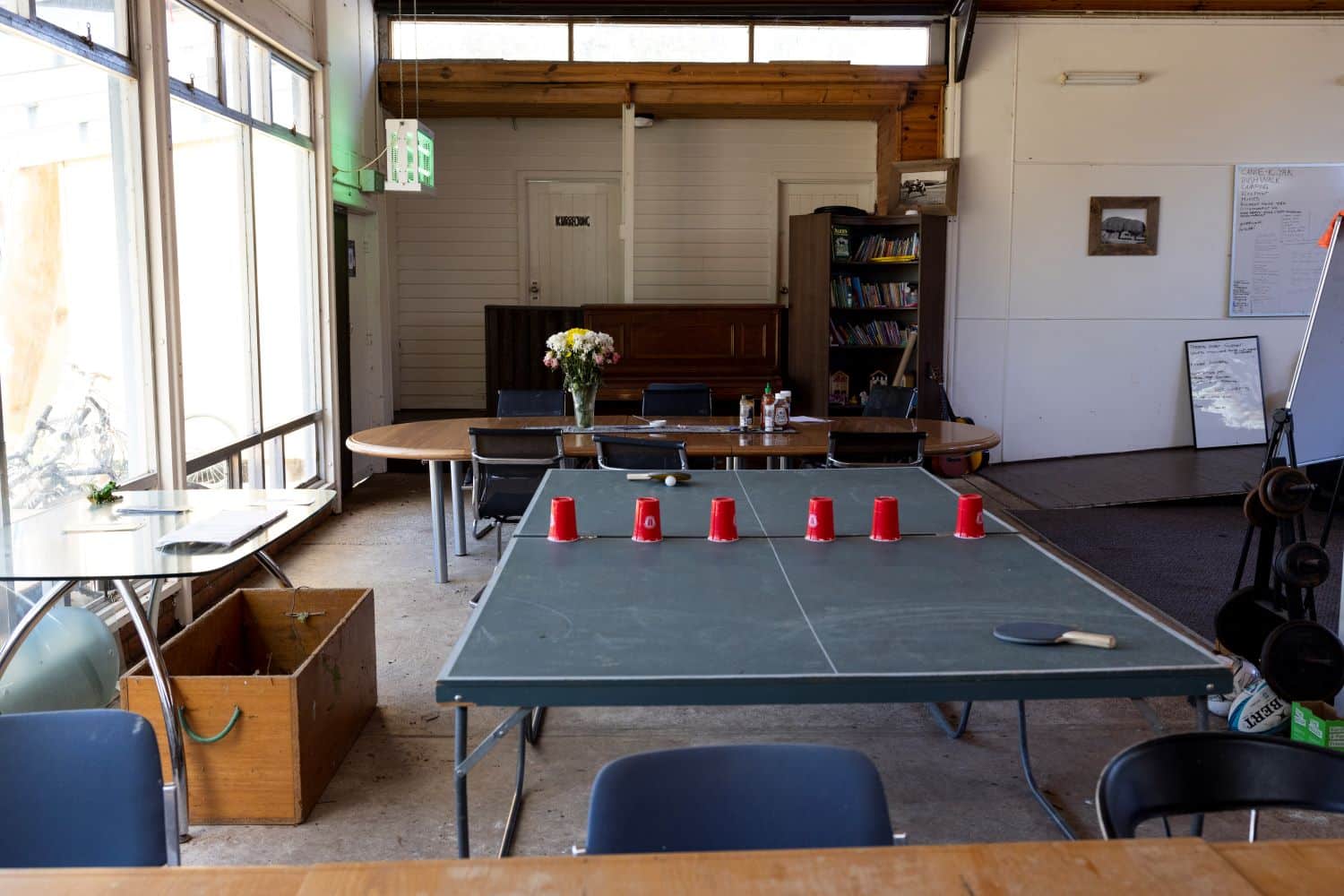
Participants are connected to services that can continue providing help; men struggling with family court matters have a zoom meeting with a volunteer lawyer; there is a volunteer psychotherapist on board; and access to support groups, such as the Australian Brotherhood of Fathers.
On the two-week programs, around five men stay at a time, while weekends average around 10-15 as there is more support available; the maximum they could cater to is 25.
To be able to help more men attend the farm camp, Mr Withall hopes they can get some guys into leadership positions; they would live on the property and help participants.
“With men, other men with lived experience are the best, I swear by that. When they come in, one of the first things we’ll tell them is you’re not just here to help you, you’re here to help everyone else in the facility,” Mr Withall says.
While there, they want the men to feel at home, which means they can bring creature comforts, phones and support animals. The amount of time a participant stays depends on their needs, ranging from one night, to a weekend, or the two-week intensive program.
A nominal fee is charged for the stay, the standard price is $180 per week for unemployed men, but financial assistance is available.
“if you can’t afford it, let us know. We want you to get the help,” he says.
On every second Saturday, Buddhist monks come and walk the men through breathing and grounding exercises, while Sunday is family day.
Mr Withall says they are currently working with A Gender Agenda to incorporate inclusivity into the practice and help members of the trans and non-binary communities. He says because men and women are different, they need a different approach; men’s issues are often caused by themselves, without realising they are the source, while men and women also process things differently.
“By dealing with men’s issues at the core and getting services for men, we better the lives of the women, we make society safer for women for domestic violence by dealing with the issues facing men, and getting services implemented and … focusing on their issues. We make society safer for our women that are suffering, yeah, for our young boys and girls,” he says.
The Zerosuicide Farm Stay is open to men around the country, and some have already travelled from Melbourne and rural NSW to take part.
To help or find out more about Zerosuicide Farm Stay, find them on Facebook: facebook.com/profile.php?id=100088909795544
If this story raised concerns, help is available. Call or visit the website of Lifeline (13 11 14) or Beyond Blue (1300 22 4636). In an emergency, call 000.
Get all the latest Canberra news, sport, entertainment, lifestyle, competitions and more delivered straight to your inbox with the Canberra Daily Daily Newsletter. Sign up here.

